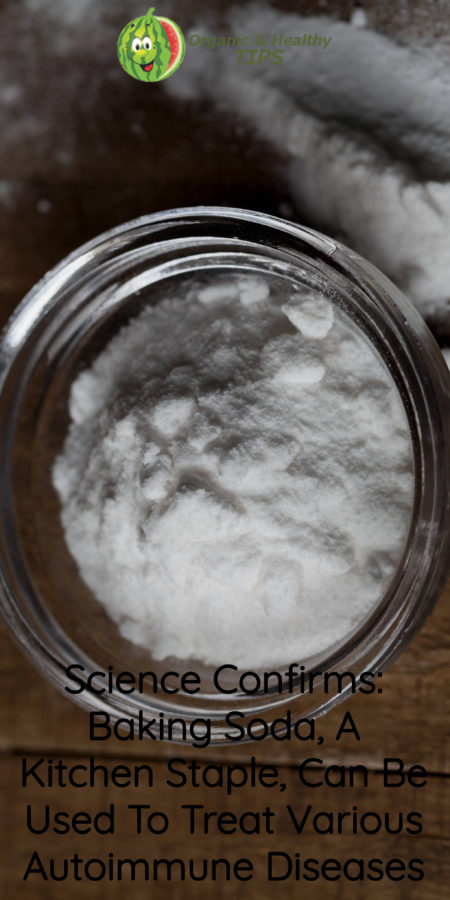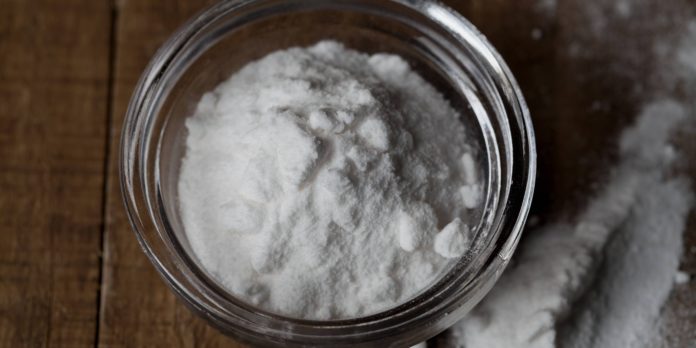Baking soda is a kitchen necessity, there’s no doubt about that. Whether you use it for baking, as a natural scrub for pots and pans, or as a deodorizer –the list of ways you can use baking soda in and around the home is truly an endless one. But did you know that baking soda (also known as (sodium bicarbonate or NaHCO3) has a variety of medicinal uses, as well? The pantry staple is especially useful for treating conditions like arthritis, but as you may have guessed — baking soda lends itself to a variety of applications across the board, in both home and health.
Even the National Institutes of Health recently funded research on the benefits of sodium bicarbonate in people with rheumatoid arthritis — and the results were astounding. It turns out that drinking a baking soda solution can help reduce inflammation across the body, but how?
Study finds baking soda fights inflammation
Researchers from Augusta University‘s Medical College of Georgia scientists set out to investigate the possible benefits and mode of action when it comes to baking soda’s ability to battle inflammation. The team published their findings in the Journal of Immunology
Not only have the scientists tested the benefits in rodents, human subjects with rheumatoid arthritis have shown promise with the baking soda treatment, too.
As reported in Science Daily, consuming the baking soda solution “becomes a trigger for the stomach to make more acid to digest the next meal and for little-studied mesothelial cells sitting on the spleen to tell the fist-sized organ that there’s no need to mount a protective immune response.”
The spleen is a key part of the immune system; it acts as a blood filter and also stores some immune cells, like macrophages. Scientists discovered about a decade ago that mesothelial lining also plays a role in immune response.
Mesothelial cells are what line the inside and outside of our organs. The lining has finger-like projections called “microvilli” which are capable of sensing the body’s environment — and warn the organs they cover when an invader (like a pathogen) is nearby, setting off an immune response.
Dr. Paul O’Connor, a renal physiologist in the MCG Department of Physiology at Augusta University and the study’s corresponding author, explained that the baking soda basically tells the body, “It’s most likely a hamburger not a bacterial infection,” and that there’s no need for alarm.
“Certainly drinking bicarbonate affects the spleen and we think it’s through the mesothelial cells,” O’Connor later contended.
In their research, the team found that drinking a baking soda solution for two weeks caused the population of macrophages in the blood to shift from pro-inflammatory “M1” cells to anti-inflammatory M2 cells.
Autoimmune Testimonial: Derek helped me heal my VERY serious autoimmune disease, hypothyroidism. After 4 days in the THRIVE Health Program I already noticed my symptoms were reducing. After 8 weeks, he had me off 4 of 5 medications and my symptoms were diminished by about 70%. I lost 25 pounds (which put me at a near ideal weight), 5 inches, 4 pant sizes, increased my oxygenation, increased my height (less stiffness, which straightened me up), increased my mobility, increased my range of motion, and I now have increased energy, better mood, better clarity. What I love is that he takes what can be a very complicated and frustrating subject (health and wellness) and simplifies it so that anyone can understand and take appropriate action. Thanks Derek!” – Myrtle E.

Baking soda protects against more than just arthritis
As the MCG researchers note, in rodents, the benefits of baking soda were tested against one of the most damaging effects of kidney disease: acidic blood. Dr. O’Connor contends that the increasing blood acidity associated with kidney disease “sets the whole system up to fail.”
In clinical trials, baking soda is so successful at reducing blood acidity that it is now offered as a treatment for patients. Studies have shown that taking baking soda slows the progression of kidney disease, too. Similarly to the arthritis patients, studies show that these benefits seem to be derived from a decrease in M1 cells and an increase in M2 cells.
“The shift from inflammatory to an anti-inflammatory profile is happening everywhere. We saw it in the kidneys, we saw it in the spleen, now we see it in the peripheral blood,” O’Connor commented.







